23 Sep 14 | Events

Author: Minnesota Historical Society
**UPDATE 02/10/14: Index will be joined by the Schools Officer Pc for Southwark to discuss the police’s role in freedom of expression.**
The police play an important part in civil society but how far should they go in protecting free speech?
The recent protests in Ferguson have received international attention as police and protesters continue to clash, but are the police just doing their job and keeping the peace? This situation has been replicated all over the world as police and public battle over civil liberties both in the streets and online, but we want to know – what do you think?
For this month’s Draw the Line event, Index on Censorship wants to know if you think the police should do more to protect our right to free speech?
Join Index on Censorship and industry professionals as we debate, discuss and explore what role do you think the police should play in protecting our right to free speech and where do you draw the line?
WHEN: Thursday 9th October, 6pm
WHERE: Index on Censorship, 92-94 Tooley St, London, SE1 2TH
TICKETS: This event is FREE for under 25s but please RSVP here.
If you need any more information please contact Fiona Bradley on [email protected]
22 Sep 14 | Digital Freedom, News and features, Statements

The European Commission (EC) on Thursday released a “mythbuster” on the controversial Court of Justice of the European Union ruling on the “right to be forgotten”. The document tackles six perceived myths surrounding the decision by the court in May to force all search engines to delink material at the request of internet users — that is, to allow individuals to ask the likes of Google and Yahoo to remove certain links from search results of their names. Many — including Index on Censorship — are worried about the implications of the right to be forgotten on free expression and internet freedom, which is what the EC are trying to address with this document. But after going through the points raised, it is clear they need some of their own mythbusting.
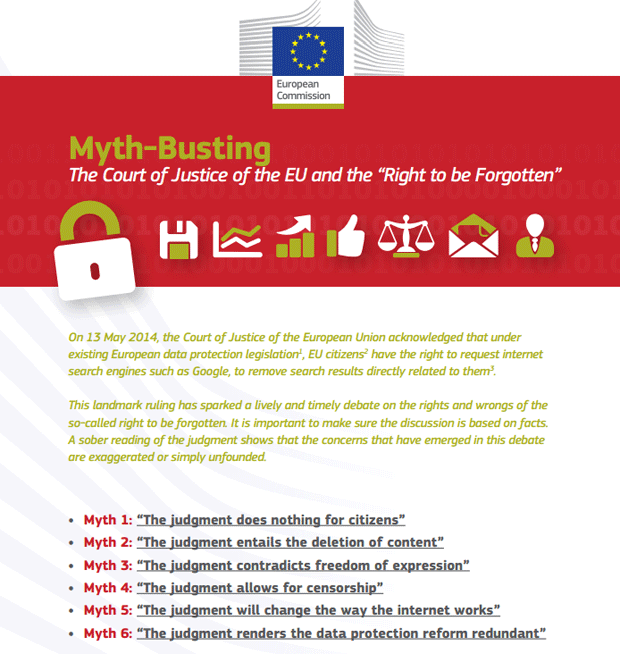
1) Groups like Index on Censorship have not suggested “the judgement does nothing for citizens”. We believe personal privacy on the internet does need greater safeguards. But this poor ruling is a blunt, unaccountable instrument to tackle what could be legitimate grievances about content posted online. As Index stated in May, “the court’s ruling fails to offer sufficient checks and balances to ensure that a desire to alter search requests so that they reflect a more ‘accurate’ profile does not simply become a mechanism for censorship and whitewashing of history.” So while the judgement does indeed do something for some citizens, the fact that it leaves the decisions in the hands of search engines – with no clear or standardised guidance about what content to remove – means this measure fails to protect all citizens.
2) The problem is not that content will be deleted, but that content — none of it deemed so unlawful or inaccurate that it should be taken down altogether — will be much harder, and in come cases, almost impossible to find. As the OSCE Representative on Media Freedom has said: “If excessive burdens and restrictions are imposed on intermediaries and content providers the risk of soft or self-censorship immediately appears. Undue restrictions on media and journalistic activities are unacceptable regardless of distribution platforms and technologies.”
3) The EC claims the right to be forgotten “will always need to be balanced against *other* fundamental rights” — despite the fact that as late as 2013, the EU advocate general found that there was no right to be forgotten. The mythbuster document also states that search engines must make decisions on a “case-by-case basis”, and that the judgement does not give an “all clear” to remove search results. The ruling, however, is simply inadequate in addressing these points. Search engines have not been given any guidelines on delinking, and are making the rules up as they go along. Search engines, currently unaccountable to the wider public, are given the power to decide whether something is in the public interest. Not to mention the fact that the EC is also suggesting that sites, including national news outlets, should not be told when one of their articles or pages have been delinked. The ruling pits privacy against free expression, and the former is trumping the latter.
4) By declaring that the right to be forgotten does not allow governments to decide what can and cannot be online, the mythbuster implies that governments are the only ones who engage in censorship. This is not the case — individuals, companies (including internet companies), civil society and more can all act as censors. And while the EC claims that search engines will work under national data protection authorities, these groups have yet to provide guidelines to Google and others. The mythbuster itself states that a group of independent European data protection agencies will “soon provide a comprehensive set of guidelines” — the operative word being “soon”. This group — known as the Article 29 Working Party — is the one suggesting you should not be informed when your page has been delinked. And while it may be true that “national courts have the final say” when someone appeals a decision by a search engine to *decline* a right to be forgotten request, this is not necessarily the case the other way around. How can you appeal something you don’t know has taken place? And what would be the mechanism for you to appeal?
As of 1 Sept, Google alone has received 120,000 requests that affect 457,000 internet addresses and may remove the information without guidance, at their own discretion and with very little accountability. To argue that this situation doesn’t allow for at least some possibility of censorship, seems like a naive position to take.
5) All decisions about internet governance will to an extent have an impact on how the internet works, so it is important that we get those decisions right. In its current form, the right to be forgotten is not up to the job of protecting internet freedom, free expression and access to information.
6) It may not render data protection reform redundant, but we certainly hope the reform takes into account concerns raised by free expression groups on the implementation of, and guidelines surrounding, the right to be forgotten ruling.
This article was posted on 22 Sept 2014 at indexoncensorship.org
22 Sep 14 | Azerbaijan, Azerbaijan News
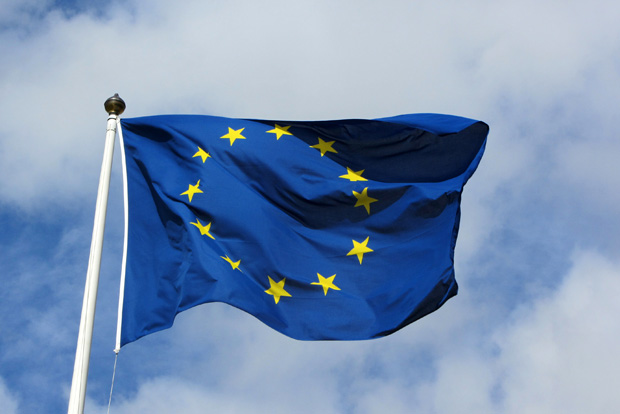
(Image: Håkan Dahström)
The European Parliament has called on Azerbaijan to release several prominent political prisoners and proceed with reforming the country’s human rights policies.
The motion calls for the immediate release of prisoners Leyla and Arif Yunus, Rasul Jafarov, Intigam Aliyev and Hasan Huseynli. It also asks that the government cease its harassment of civil society organisations, opposition politicians and independent journalists.
Leyla and Arif were arrested at the end of July 2014 and are facing a series of charges which include treason and fraud. On 14 July 2014 Hasan was sentenced to six years in prison, Rasul and Intigam were arrested at the beginning of August 2014. There are currently 98 political prisoners in Azerbaijan.
EU support and cooperation with Azerbaijan, including ongoing negotiations for a Strategic Modernisation Partnership, must be conditional upon and include clauses relating to protection of human rights, states the text from the session.
20 Sep 14 | Azerbaijan, Azerbaijan Letters

Rasul Jafarov, Arif Yunus and Leyla Yunus (Photos: Rasul Jafarov (© IRFS), Arif and Leyla Yunus (© HRHN))
Azerbaijanis are demanding that BP stop supporting repression in their country on the 20th anniversary of the Contract of the Century.
A letter has been sent to BP CEO Bob Dudley to coincide with today’s 20 year anniversary. On 20 September 1994 BP signed a contract with then president Heydar Aliyev to extract Azerbaijani oil. This initiated the oil company’s two-decade relationship with Azerbaijan, providing money and power to Aliyev, which the letter argues, has hindered democracy in the country.
Mirvari Gahramanli, The Oil Workers Right Protection Organisation Union says: “BP is where the president got his power from. What is he without the money? Where is his wealth, where are his police, without BP’s money? The Aliyevs have grown rich from BP and now as a result they have much more power.”
The letter is asking BP to call on the Aliyev government to release all 98 political prisoners currently being detained, and to especially raise the cases of the most recent arrests; Leyla and Arif Yunus, Intigam Aliyev and Rasul Jafarov – who has managed to sign the letter from prison. It also asks that BP remove its sponsorship from the 2015 Baku European Olympic games.
Protesters gathered outside the London headquarters of BP on Wednesday, ahead of today’s anniversary; Azerbaijanis are unable to protest at BP’s offices in Baku as the current level of repression means that taking part in a demonstration could lead to a jail sentence.
Emma Hughes, Platform London says: “We took action this week because Azerbaijani’s are unable to. I am free to stand outside BP – in Azerbaijan such an action would mean arrest. BP are propping up the Aliyev regime. If they are serious about supporting democracy in Azerbaijan they must talk about the country’s 98 political prisoners and end their sponsorship of the 2015 Baku Olympics.”
This article was posted on 20 September 2014 at indexoncensorship.org
19 Sep 14 | Events, Senegal
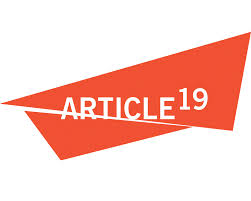
Index on Censorship in association with ARTICLE 19, Senegal, invite you to a workshop to launch Frontline Freespeech, a pilot project seeking to amplify the voice of individuals under pressure.
This workshop will bring together grassroots activists alongside leading free expression campaigners to share their recent experiences of censorship, to record and map current censorship challenges and to build impactful free speech networks in Senegal.
A wide audience are expected to attend the workshop: campaigners, community leaders, network co-ordinators, human rights defenders, journalists, bloggers, artists, scholars and representatives of minority groups facing free expression challenges alongside key human rights organisations and independent media.
Thursday 2 October 2014
West African Research Center (WARC)
Street E x Leon Gontran Damas Fann
Residence, BP 5456 Dakar-Fann
To RSVP for this workshop please email Khadidiatou Diaw, [email protected], +221 33 869 03 22
Registration will close on Thursday 25 September 2014 | PDF
19 Sep 14 | Events, Tunisia

Index on Censorship in association with Article 19, Tunisia, invite you to a workshop to launch Frontline Freespeech, a pilot project seeking to amplify the voice of individuals under pressure.
This workshop will bring together grassroots activists alongside leading free expression campaigners to share their recent experiences of censorship, to record and map current censorship challenges and to build impactful free speech networks in Tunisia.
A wide audience are expected to attend the workshop:campaigners, community leaders, network co-ordinators, human rights defenders, journalists, bloggers, artists, scholars and representatives of minority groups facing free expression challenges alongside key human rights organisations and independent media.
Tuesday 30 September 2014
Golden Tulip El Mechtel 3 Avenue Ouled
Haffouz | El Omrane, Tunis – Tunisia
To RSVP for this workshop please email Amira Cherif, [email protected], +21652479557
Registration will close on Tuesday 23 September 2014 | PDF
19 Sep 14 | Events, India

Index on Censorship in association with the Digital Empowerment Foundation, India, invite you to a workshop to launch Frontline Freespeech, a pilot project seeking to amplify the voice of individuals under pressure.
This workshop will bring together grassroots activists alongside leading free expression campaigners to share their recent experiences of censorship, to record and map current censorship challenges and to build impactful free speech networks in India.
A wide audience are expected to attend the workshop: campaigners, community leaders, network co-ordinators, human rights defenders, journalists, bloggers, artists, scholars and representatives of minority groups facing free expression challenges alongside key human rights organisations and independent media.
Wednesday 24th September 2014
Business Management Academy, Bangalore
To RSVP for this workshop please email Avesta Choudhary, [email protected], 011-26532786/87
Registration will close on Wednesday 17 September 2014 | PDF
19 Sep 14 | Academic Freedom, News and features, Politics and Society, Religion and Culture, United States
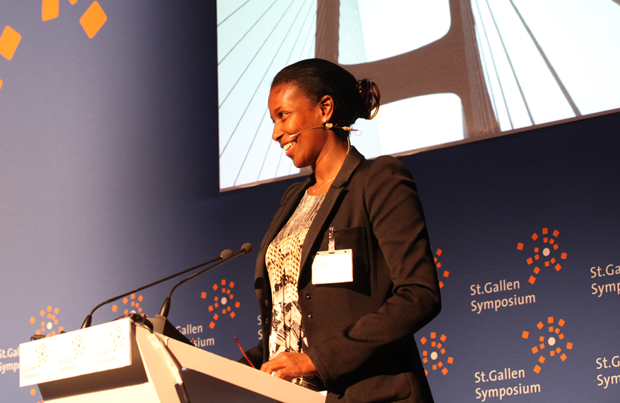
Ayaan Hirsi Ali at the University of St. Gallen in 2011 (Photo: International Students’ Committee/Wikimedia Commons)
Earlier this month, Yale President Peter Salovey used his address at the university’s freshman assembly to call for students to protect unfettered freedom of expression, labelling it “essential on a university campus”. Specifically, his speech dealt with the policing of university speakers by protesting student groups. He urged students not to participate in the types of activities that have forced prominent public figures out of speaking roles at other universities.
This address came in anticipation of Yale’s William F Buckley Jr. Program — a group dedicated to promoting intellectual diversity on campus — hosting Ayaan Hirsi Ali. The Dutch activist and writer has been accused of holding strong anti-Islamic views, and her work has been a source of controversy throughout her career.
The president’s advice was not heeded. The announcement of Ali’s inclusion in the speaker series was met with complaints by over 30 student organisations. Spearheaded by Yale’s Muslim Students Association, who wrote a letter and started a petition condemning the speech, groups of all makes attempted to get Ali removed from the docket or to get other speakers added to the event. Despite this, Yale’s faculty stood by the president’s message, and the event went ahead on 16 September.
This follows the case of a reverend at the university being forced to step down after he wrote a three sentence op-ed criticising an article in the New York Times. He argued that a piece on the rise of anti-semitism in Europe ignored the link between this and the Gaza conflict.
But these are not the only recent examples of free expression being limited on American campuses. Here are nine other universities that have faced free speech controversies in the past year.
CAL Berkeley
University of California Berkley chancellor, Nicholas Dirks, sent an email to students on 5 September entitled “Civility and Free Speech”. The email came at the start of the school year marking the 50th anniversary of the Free Speech Movement, a protest that helped lift the ban on political activities on campus and increased students’ free speech rights at universities around the world. The email, however, turned into a platform for Dirks to place qualifiers on students’ free speech, saying it should only be practiced “insofar as we feel safe and respected in doing so”. Dirks called for civility in free speech, which many, including some faculty members at the university, felt inhibited academic freedom.
Arkansas State University
Arkansas State University attempted to force football players to remove or modify crosses from their helmets, used to commemorate two former teammates who were killed in the last year. The symbol memorialising the former teammates was challenged by a group of outspoken atheists known as the Freedom from Religion Foundation who called the symbol inappropriate. The team has since changed it into a bar baring the initials of the fallen. One player, however, is suing the school, saying that he feels the university has censored the team.
University of Illinois at Urbana-Champaign
The University of Illinois at Urbana-Champaign revoked the hiring of Steven Salaita, an American-Indian studies and Israeli-Arab Relations professor, after he wrote anti-Israeli tweets in response to Israeli violence on the Gaza Strip. Tweets like, “When will the attacks on #Gaza end? What is left for #Israel to prove? Who is left for Israel to kill? This is the logic of genocide.” were posted on the first and second of August. The university claimed that current employees of the university would not be fired on the same grounds, but since Salata was merely promised a position and had yet to start working, the same rules did not apply.
University of Georgia
A group of students at the University of Georgia, represented by the Alliance Defending Freedom (ADF), have filed a lawsuit against the school after it adopted a policy that limits free speech to certain zones. These areas make up less than 1 percent of the campus and are open from 8am-9pm Monday through Friday for protest and other political demonstration. Protests on other parts of campus must be cleared 48 hours in advance by an administrator. ADF’s Travis Barham said in a press release, “Public universities are supposed to be the marketplace of ideas, and so they should promote and celebrate free speech, not quarantine it.”
Rutgers University
Former US Secretary of State Condoleezza Rice withdrew from her speaking opportunity at Rutgers University’s graduation commencement following student protests. Students were in uproar about the former politician’s involvement in the Iraq war, namely her signing off on the torture of Iraqi citizens. This was not the first time Rice faced protest as a commencement speaker. In 2006 students and faculty alike held up signs during graduation, voicing their displeasure over her inclusion.
Boise State University
Boise State’s chapter of the Young Americans for Student Liberty, a national organisation for education of libertarian values and the constitution invited gun law activist Dick Heller to be a keynote speaker at one of their campus events. The group, seemingly due to the controversial nature of the speaker’s opinions, was charged an additional sum of money as a security fee 24 hours before the event which had been scheduled for six weeks. This came just one week after the university forced a pro-life organisation to put up warning signs at two of their on campus events. Both of these cases were subjects of lawsuits citing the First Amendment right to freedom of expression as being violated.
Citrus College
A student at Citrus College in Glendora, California was threatened with removal from campus after he was caught petitioning against the spying of the National Security Agency outside of the school’s designated free speech zone. These areas make up just over one percent of university premises, with every other part of a campus labelled a “non-public forum”. The student sued, making it the second time in just over a decade the college faced legal action over a free speech issue. California has two laws that that protect free speech on campuses.
University of Massachusetts Amherst
In the autumn of 2013, the University of Massachusetts banned electronic dance music events following the death of one of their students due to an MDMA overdose. The death came at the end of a string of overdoses on campus and in the Massachusetts area and the ban was an attempt to curb this illegal drug use. Students responded with a peaceful protest which featured picketing, petitioning and flash mobs.
Iowa State University
Iowa State University banned t-shirts made by the school’s branch of the National Organisation for the Reform of Marijuana Laws. The school claimed the use of their mascot on the shirts was a trademark violation. The school filed a lawsuit against NORML after the image was published in a local newspaper, following pressure by state officials who did not want the school to be seen as pro marijuana reform. NORML asked for the case to be dismissed claiming ISU failed “to allege sufficient facts to establish any constitutional right in the use of ISU’s trademarks”.
This article was posted on Thursday 19 Sept 2014 at indexoncensorship.org
19 Sep 14 | Events
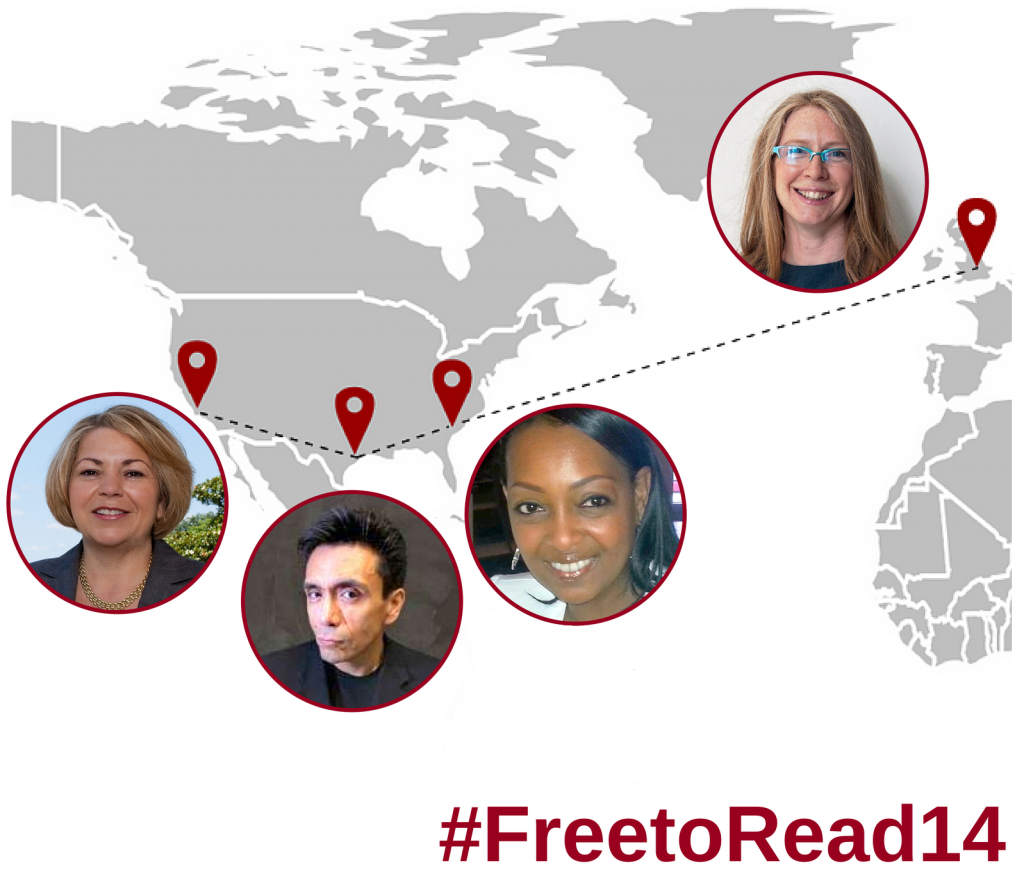
Wednesday, September 24, 9am PT/12pm ET/5pm BST
In 2013, there were 307 reported requests for books to be removed from America’s libraries, potentially putting those volumes out of reach of students, readers, and learners of all types. While every corner of the map faces unique issues related to library censorship, these issues also catalyze passionate freedom-to-read advocates dedicated to getting the books back on library shelves. In this one-hour webinar, we will “travel” from London, to South Carolina, to Texas, to California, to talk with three activists about the problems they face and their efforts to un-ban books as well as Congresswoman Linda Sanchez about why their efforts are so important.
London, UK: Jodie Ginsberg, CEO of Index on Censorship, will start us off by discussing issues faced outside of the U.S. and how Index chooses to respond.
Charleston, South Carolina: We will then travel to Charleston — where the graphic novel Fun Home: A Family Tragicomic by Alison Bechdel has been a flashpoint in a university funding controversy — to hear from Shelia Harrell-Roye, a committee member from Charleston Friends of the Library. With the 2014 Banned Books Week focus on graphic novels, Harrell-Roye will discuss what her group has been doing to support this critically acclaimed book.
Houston, Texas: Moving westward, we will travel to Houston to hear from Tony Diaz, author, radio host, and leader of El Librotraficante. Diaz is a champion for banned books and for ethnic studies textbooks in both Arizona and Texas.
This banned books journey will end in California where Congresswoman Linda Sánchez of the CA 38th District, will offer some closing remarks about why the freedom to read is so important for our nation’s future. Afterward, our very own Ed McBride will wrap up the conversation from Thousand Oaks, CA.
Wednesday, September 24, 9am PT/12pm ET/5pm BST
Registration is free, but spaces are limited. (Note: On the following screens you will be asked to set your timezone preferences, then click register on the third screen to reserve your spot.)
Planning to attend? Let your social space know about this important event using #FreetoRead14.
19 Sep 14 | Bahrain, Digital Freedom, News and features
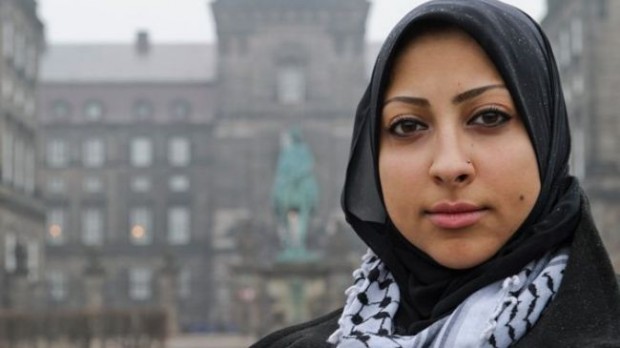
Maryam al Khawaja has been released
Political activist Maryam Alkhawaja has been released from prison but the charges against her still stand.
Alkhawaja was arrested at the end of last month when she travelled to Bahrain to visit her father, prominent human rights defender and co-founder of the Bahrain Centre for Human Rights (BCHR), Abdulhadi Alkhawaja, who has now been on hunger strike for almost four weeks.
Sayed Ahmed Alwadaei, head of advocacy at Bahrain Institute for Rights and Democracy (Bird), told Index on Censorship he felt Maryam Alkhawaja’s release was a clear example of how international advocacy can be a success. However, he said they are still concerned about her: “We are kind of really getting mixed messages whether her release is just to ease the international pressure,” he added.
A guarantee of a residing address, and a travel ban were the conditions of Alkhawaja’s release. She is also due in court at the beginning of next month, to face charges of assaulting a police officer, which she denies.
Khalid Ibrahim, the Gulf Centre for Human Rights (GCHR) co-director, said: “We call on the government of Bahrain to immediately drop the charges and free her without conditions.”
This week BCHR and GCHR wrote an open letter to Abdulhadi Alkhawaja urging him to end his hunger strike as his life is at serious risk due to prolonged starvation. He also undertook a hunger strike in 2012 which lasted for 110 days.
Abdulhadi Alkhawaja responded from prison yesterday. Thanking his friends for their concern, he added: “But as the world can see we’re in a situation where our only choice to demand rights and freedoms is by risking our lives.”
Ibrahim added, “Abdulhadi should also be freed, along with other wrongfully detained human rights defenders who have been targeted as a result of their peaceful and legitimate activities in defence of human rights.”
Yesterday, Americans for Democracy and Human Rights in Bahrain (ADHRB) and Bird, along with co-sponsors from several NGOs, hosted an event at the 27th session of the United Nations Human Rights Council in Geneva, entitled Tracking Bahrain’s UPR (Universal Periodic Review) Inaction Through 2014.
The discussion was moderated by prominent human rights activist and president of the BCHR, Nabeel Rajab. Speakers at the event were Philippe Dam (Human Rights Watch), Said Haddadi (Amnesty International), James Suzano (ADHRB), Abdulnabi al Ekri (Bahrain Human Rights Organisation – BHRO) and Nidal al Salman (BCHR).
Alwadaei said the event received good coverage, and it was very beneficial for political prisoners in Bahrain. “It was a place where they would hear their voice, where they will basically believe that they are not on their own in this struggle, there is an international community monitoring so they are not isolated,” he told Index.
Also this week, women’s rights defender Ghada Jamsheer was arrested and detained on charges of defamation on Twitter. GCHR and BCHR say her online blog has been blocked in Bahrain since 2009, and they believe these recent charges to be a direct violation of her human rights.
This article was posted on 19 September 2014 at indexoncensorship.org
18 Sep 14 | Armenia, Azerbaijan, Azerbaijan News, News and features, Turkey
On 5 September, Azerbaijaini president Ilham Aliyev addressed the Nato summit at the Celtic Manor golf resort in Newport, Wales.
It was an unspectacular speech from an unspectacular autocrat. As he often does, he talked about the amount of money Azerbaijan was spending abroad, Azerbaijan’s rapid economic development, Azerbaijan’s role as a bridge between east and west, and Azerbaijan’s continuing dispute with Armenia.
The dispute between the two countries over the territory of Nagorno-Karabakh, which has gone on pretty much since the break-up of the Soviet Union, flared as recently as this summer, when fourteen Azerbaijani troops were killed in clashes with their Armenian counterparts. It was easy to miss this, considering events in other parts of the former Soviet Union. As seems usual in international conflict now, neither side made any gain and both sides claimed victory.
A few weeks after that skirmish, and just before his Nato address, Aliyev met recently-elected president (formerly prime minister) Recep Tayyip Erdogan of Turkey. Aliyev is keen to build an alliance with Turkey, and clearly sees common cause in a shared dislike of Armenia. After the meeting, the Azerbaijani leader tweeted that “Turkey has always pursued an open policy on the issue of the Armenian-Azerbaijani conflict over Nagorno-Karabakh, has always stood by Azerbaijan, stood by truth, justice and international law.” He went on:
This was interesting, in that Erdogan did not seem to mention any discussion of the Armenian genocide in his press briefing after the meeting. In fact, the Turkish president has been perceived as attempting to soften the Turkish state’s hardline denial of the incidents of 1915, when one million Armenians suffered deportation and death at the hands of the Ottoman Empire, the predecessor of modern Turkey.
In April, on the 99th anniversary of the beginning of the ethnic cleansing of Armenians, Erdogan released a statement saying: “Millions of people of all religions and ethnicities lost their lives in the first world war. Having experienced events which had inhumane consequences – such as relocation – during the first world war should not prevent Turks and Armenians from establishing compassion and mutually humane attitudes towards one another.”
The Justice and Development (AK) party leader went on to express condolences to the descendants of people who had died “in the context of the early 20th century”.
Now, this isn’t quite an apology; it’s barely even an apology at upset caused. It’s closer to the “mistakes were made” formulation, which is designed not so much to pass the buck as fire the buck into the heart of the sun in the hope that no one will ever have to deal with it again, particularly not the person whose buck it is in the first place.
But in the context of Turkey, where not long ago talking about the Armenian genocide could get you killed, it’s as good as you’re going to get for now.
So why would Aliyev raise the genocide issue this month? Perhaps he is nervous that Turkey, a major ally in the Nagorno-Karabakh dispute, is going soft on Armenia. This year’s detente between Turkey and Armenia continued when Armenia’s foreign minister Eduard Nalbandian attended Erdogan’s presidential inauguration at the end of August.
Nalbandian, in return, formally offered Erdogan an invitation to Armenia’s genocide commemorations next year, repeating an invitation first extended a few months ago by the country’s president Serzh Sargsyan. Any newfound good relations between Armenia and Turkey would severely weaken Azerbaijan’s territorial argument, or more accurately, weaken its ability to make the argument forcefully in the international arena. Turkey’s dispute with Armenia, after all, is mainly historic, and Erdogan, having seemingly consolidated his own power base outside of both the secular “deep state” and the Islamic Gülen movement to which many assumed he owed his success, now has a free hand on shaping foreign policy. Azerbaijan’s dispute with Armenia is current and, Aliyev hopes, immediate.
And so Azerbaijan has chosen to try to reignite the issue for its own ends. Meanwhile, in his own country, human rights abuses continue, with reports last week that Leyla Yunus, Director of the Institute for Peace and Democracy, was in ill health after prison beatings.
In spite of all this, Azerbaijan will continue to attempt to buy respectability. Next June, Baku will hold the first “European Games”, backed by the European Olympic Committee, featuring such irrelevancies as three-a-side basketball and beach soccer. It is not exactly the real thing, but then, post-Soviet Azerbaijan is a country built of facades; facades of modernity and wealth and progress and “democracy”. Facades that hide an underlying ugliness.
This article was posted on Thursday 18 Sept 2014 at indexoncensorship.org
17 Sep 14 | Azerbaijan, Azerbaijan News, News and features, United Kingdom

London-based daily newspaper Metro ran a feature this month extolling the delights of Baku, the capital of Azerbaijan. The photo-driven feature article comes at a time when the government of President Ilham Aliyev is ratcheting up pressure on dissenters, including denying independent news outlets the kind of freedoms that a paper such as Metro, whose parent company is outspoken on the importance of press freedoms, enjoys in the UK.
Despite attempts to present itself to the outside world as a modern and open society — in part through a concerted international PR campaign — Azerbaijan has a woeful human rights record and continues to arrest, detain and harass any opponents to the regime of President Ilham Aliyev. In the last few months, many campaigners and activists have been arrested in an attempt to silence them.
Metro highlighted 10 things to do in Baku. Here we list just five things you need to know about Azerbaijan before you go. We ask our supporters and all those who care about a free press and free expression to draw attention to these so we can counter the whitewash of the Aliyev regime.
There is an ongoing crackdown on government critics

A number of high profile Azerbaijanis known for their criticism of authorities have been jailed in a matter of weeks. These include human rights activists Leyla and Arif Yunus and Rasul Jafarov, human rights lawyer Intigam Aliyev and journalist Seymur Hezi. This new wave of repression followed the jailing of two human rights defenders who lead the only independent group monitoring elections in Azerbaijan.
Independent media is silenced
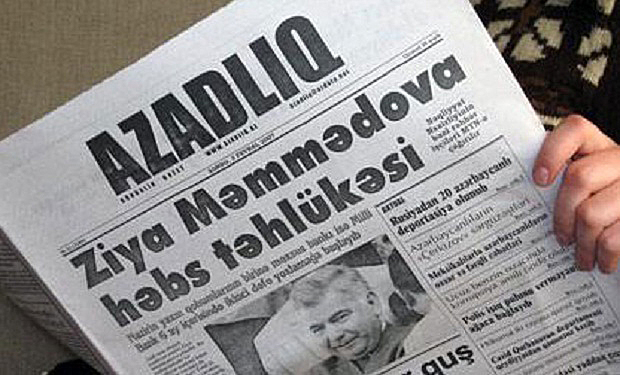
Azerbaijan’s last independent newspaper Azadliq, which was named 2013 Guardian Journalism award winner at the Index Freedom of Expression awards in March 2014, was forced to suspend printing in July because of financial pressures from the government. This is a familiar pattern for Azerbaijan’s critical press, which has long been subjected to an array of attacks. Independent news outlets face economic sanctions and are often barred from distribution networks. Journalists are also victim to legal threats. In the first six months of 2013, 36 defamation suits were brought against media outlets or journalists. Award-winning investigative journalist Khadija Ismayilova was subjected to an aggressive smear and blackmail campaign in retaliation for her coverage of government corruption and continues to be targeted by authorities.
Internet users are targeted
Ahead of last year’s election Azerbaijan extended penalties for criminal defamation and insult to cover not just traditional media, but also online content, including social networks. The potential length of pre-trial detention has increased from 15 to 90 days. In May, a university student and member of the Free Youth organisation, was arrested for a Harlem Shake video posted on YouTube. A human rights defender was sentenced to four years in jail on hooliganism charges after posting videos on YouTube containing interviews with victims of a gang they alleged had connections to local police officers. A freelance journalist who was outspoken in his criticism of the government on social media was given a four-and-a-half-year prison sentence on charges that included appealing for mass disorder.
Artists are censored
Despite the fact that Azerbaijan has committed to respect and protect artistic freedom of expression, authorities restrict this right. This is especially the case for alternative artists and those deemed to be critical of the government, whose ability to perform, display, or disseminate their work is limited. Self-censorship is one consequence of this, with many artists shying away from producing critical or controversial work for fear of the possible consequences. Musician Jamal Ali, who has spoken out against President Aliyev, was allegedly tortured by the police.
Democratic principles are ignored

Current president Aliyev has been in power since 2003, when he took over from his father Heydar, and in 2009 he removed term limits for the presidency. According to the international observer mission, the October 2013 election “was undermined by limitations on the freedoms of expression, assembly and association”, with “significant problems” observed throughout election day. The 2003 and 2008 votes also failed to meet international standards. Transparency International has called Aliyev’s government the most corrupt in Europe. Meanwhile, authorities have engaged in a wide-reaching international PR campaign. In 2012, the country was given a chance to project a positive image to the world through hosting the Eurovision Song Contents. Preparations included urban renewal programs that saw homes demolished and families evicted. It remains to be seen what will happen next year, when the inaugural European Games come to Baku.
This article was published on Wednesday 17 Sept 2014 at indexoncensorship.org














